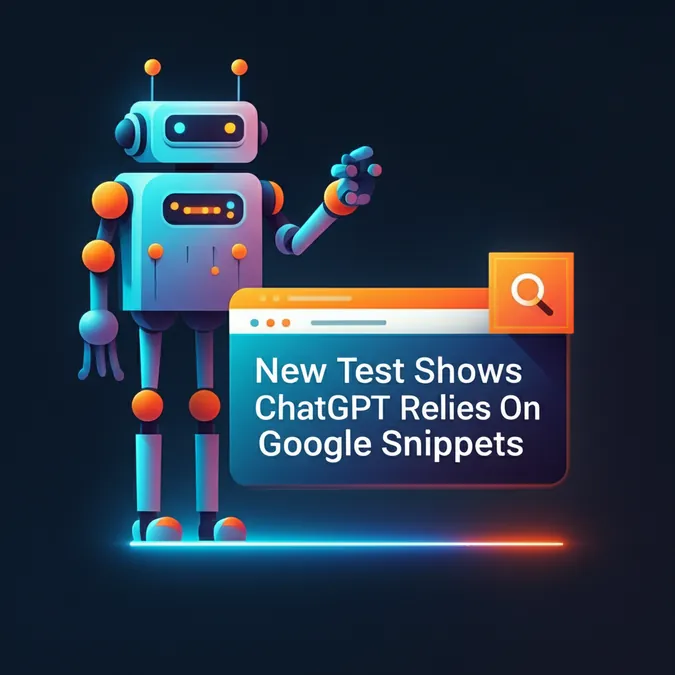Developer Offer
Try ImaginePro API with 50 Free Credits
Build and ship AI-powered visuals with Midjourney, Flux, and more — free credits refresh every month.
AI Agents Favor Platforms Not Your Brand Story
The Dawn of the Autonomous Agent
Earlier this morning, a hotel reservation was made under my name. But to be accurate, I didn’t make it. It was executed on my behalf by the recently launched ChatGPT agent, an autonomous AI system capable of parsing ambiguous input, retaining contextual preferences, scanning through massive datasets in real time, and translating a loosely expressed intent (in this case: “find me a place to stay in Rome”) into a concrete, optimized, executable outcome.
Human on the Loop A New Paradigm
The process was fluid. Step by step, the agent moved forward, resolving ambiguity, narrowing options, and presenting increasingly precise solutions. And then, at a very specific and telling moment, when personal data had to be entered, it paused, stating: “For privacy reasons, please enter your information yourself. Let me know when you’re done.”
That short line, easily overlooked by the average user, reveals the entire architecture of what’s happening beneath the surface. It is the moment of intentional withdrawal, the designed handover, the point where human agency is no longer central but conditional.
Human-on-the-loop, where humans are not in control, but somehow tolerated within the loop.
The Death of UX and the Rise of Intent
In my latest book, We Are the Glitch, I argued that AI is no longer confined to backend functionality. It is the new user interface: not a replacement of old screens, but a dissolution of the very concept of interface itself. UX, as a discipline, is dying. What we’re witnessing is not an evolution of usability but its negation: a shift from interface to intent, from action to delegation, from click to context.
UX, as a discipline, is dying.
We are already beyond the visual. The interface has become invisible.
Why AI Prefers Structure Over Story
But here’s the part worth pausing on. The agent, despite its intelligence and apparent freedom, went straight to Booking.com. Not a charming independent hotel website, not a “hidden gem” in the digital countryside, but the most structured, most API-rich, most semantically optimized platform available.
And, let's get this straight: this is not a glitch. It’s the whole point.
The idea that AI will magically flatten the playing field, empowering small operators and subverting existing hierarchies is not just naïve, it’s structurally flawed. AI agents don’t roam the web like humans. They don’t care about your brand story, your beautiful website, or your emotional copywriting. They care about structure.
AI agents don’t roam the web like humans. They don’t care about your brand story, your beautiful website, or your emotional copywriting. They care about structure.
OTAs The Unseen Winners of the AI Revolution
Right now, only a few players have built environments optimized for agentic interaction. Unsurprisingly, those players are the OTAs.
The myth of disintermediation, that AI will bypass intermediaries and restore visibility to the fragmented periphery of hospitality, is precisely that: a myth. The truth is more brutal. In the time of agentic search, OTAs are not being bypassed. They are becoming the substrate. While the industry continues to discuss parity and personalization, the real conversation has already shifted from user experience to systemic compatibility.
In the time of agentic search, OTAs are not being bypassed. They are becoming the substrate.
The End of Control and What Comes Next
As for me, I strongly dislike booking hotels online. It’s slow, repetitive, and cognitively expensive. But this shift isn’t just about killing friction. Something deeper is being stripped away. And no, it’s not just frustration or inefficiency. It’s the illusion of control. The comfortable fiction that we, the users, are still the protagonists of the digital stage.
Guess what? We’re not.
The interface is gone. The agent has taken over. Quietly, efficiently, and possibly irreversibly.
And if you're not ready for that, you're already out of the loop.
Compare Plans & Pricing
Find the plan that matches your workload and unlock full access to ImaginePro.
| Plan | Price | Highlights |
|---|---|---|
| Standard | $8 / month |
|
| Premium | $20 / month |
|
Need custom terms? Talk to us to tailor credits, rate limits, or deployment options.
View All Pricing Details

